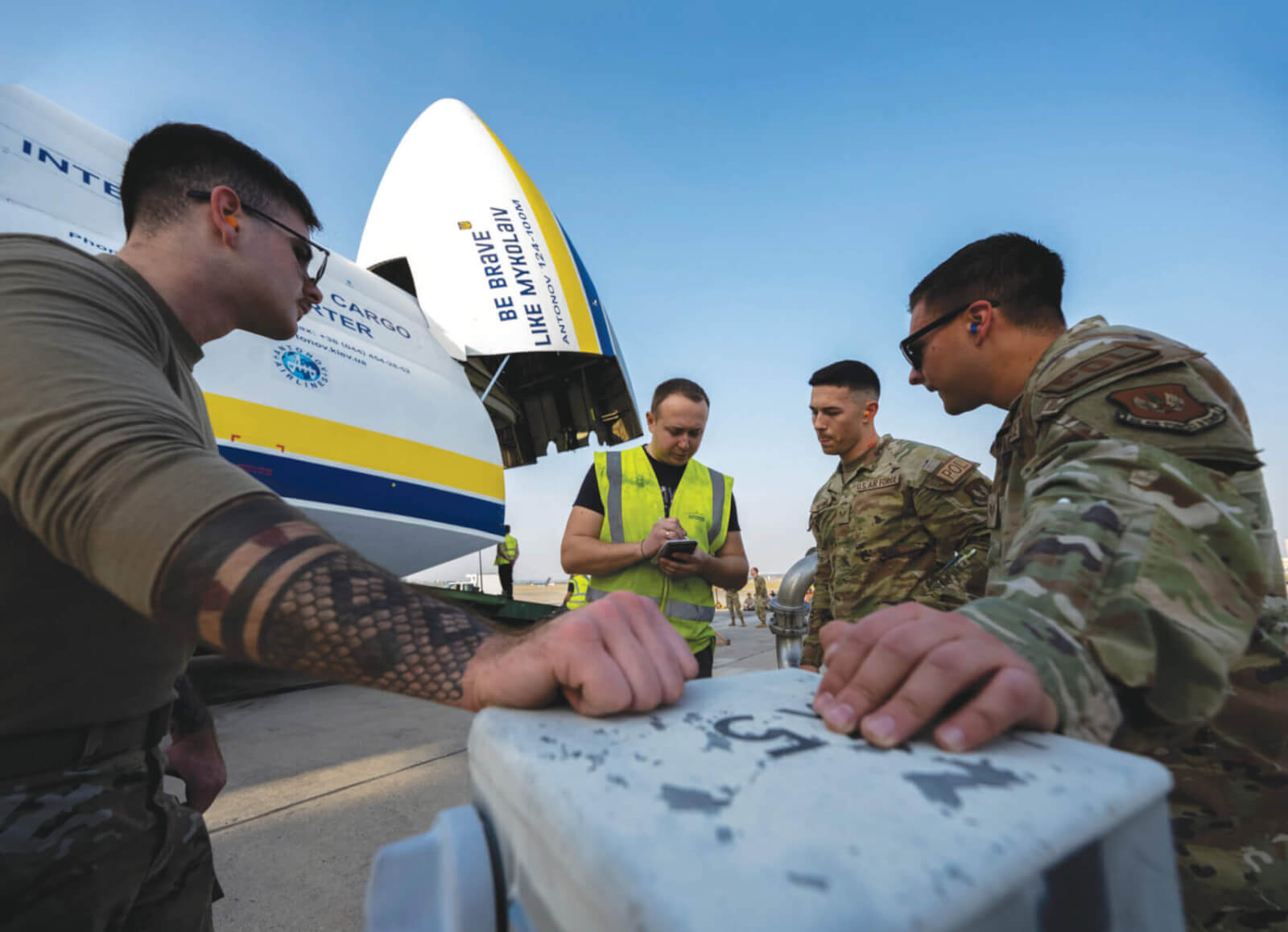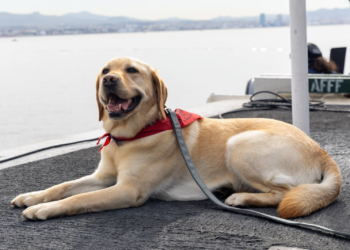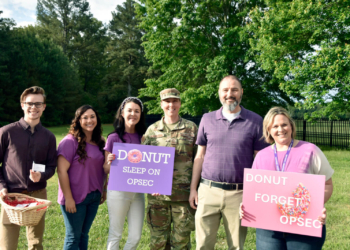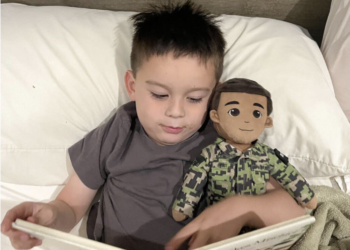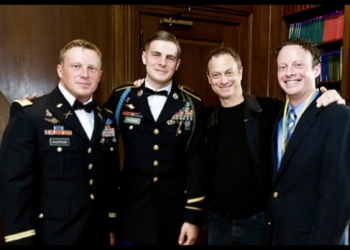Army Chief Warrant Officer 5 Matthew Rose has seen many damaged communities through the windows of a UH-60 Blackhawk helicopter.
During his nearly 20-year-career, he’s looked out at Egyptian, Afghan and Iraqi sites in varying states of hardship. Still, what he saw in the Hatay Province of Turkey after the 7.8 magnitude earthquake on Feb. 6 put his previous sights into perspective.
“There were parts of that city that suffered destruction on a level that I’d never seen,” said Rose, a standardization pilot for the 1st Armored Division’s combat aviation brigade. “It was very rare to arrive on scene to a place of such clear need.”
That’s why many American soldiers and airmen deployed to Incirlik Air Base in Turkey where American personnel were already serving. Together, they helped U.S. allies begin restoring lives after tens of thousands died in early February.
More than 4,000 sorties into Incirlik delivered 18,000 tons of cargo to support the country’s government, according to Capt. Keith Peden, public affairs officer for the 39th Air Base Wing. He said the 39th Civil Engineering Squadron installed a 100-bed field hospital in Hatay Province while the 39th Force Support Squadron assisted nearly 1,500 relief personnel who arrived at Incirlik.
The Air Force’s 728th Air Mobility Squadron offloaded cargo and the 39th Logistics Readiness Squadron maintained vehicles that transported cargo around the base.
Staff Sgt. Karl Woltemath and Senior Airman Wyatt Dauer, of the 39th Logistics Readiness Squadron, had intense workdays as they repaired different vehicles and equipment involved in the cargo distribution.
Local contractors told both men they appreciated the U.S. military’s aid. Dauer said they unexpectedly became a listening ear for burdened, weary partners, even though they couldn’t learn Turkish as fast as they wanted to.
“A lot of the guys that were in the shop, a lot of their families were affected by the earthquake,” Dauer said of his Turkish coworkers. “It was wearing them down. It’s always good to talk that out.”
Showing such compassion alongside competent work was a highlight for Dauer as he considered the influence of military training on humanitarian missions.
“We train year-round to be able to be minutemen, to be able to go wherever we need,” Dauer said. “To work with our hands and to really push it forward to help people. It’s a great feeling.”
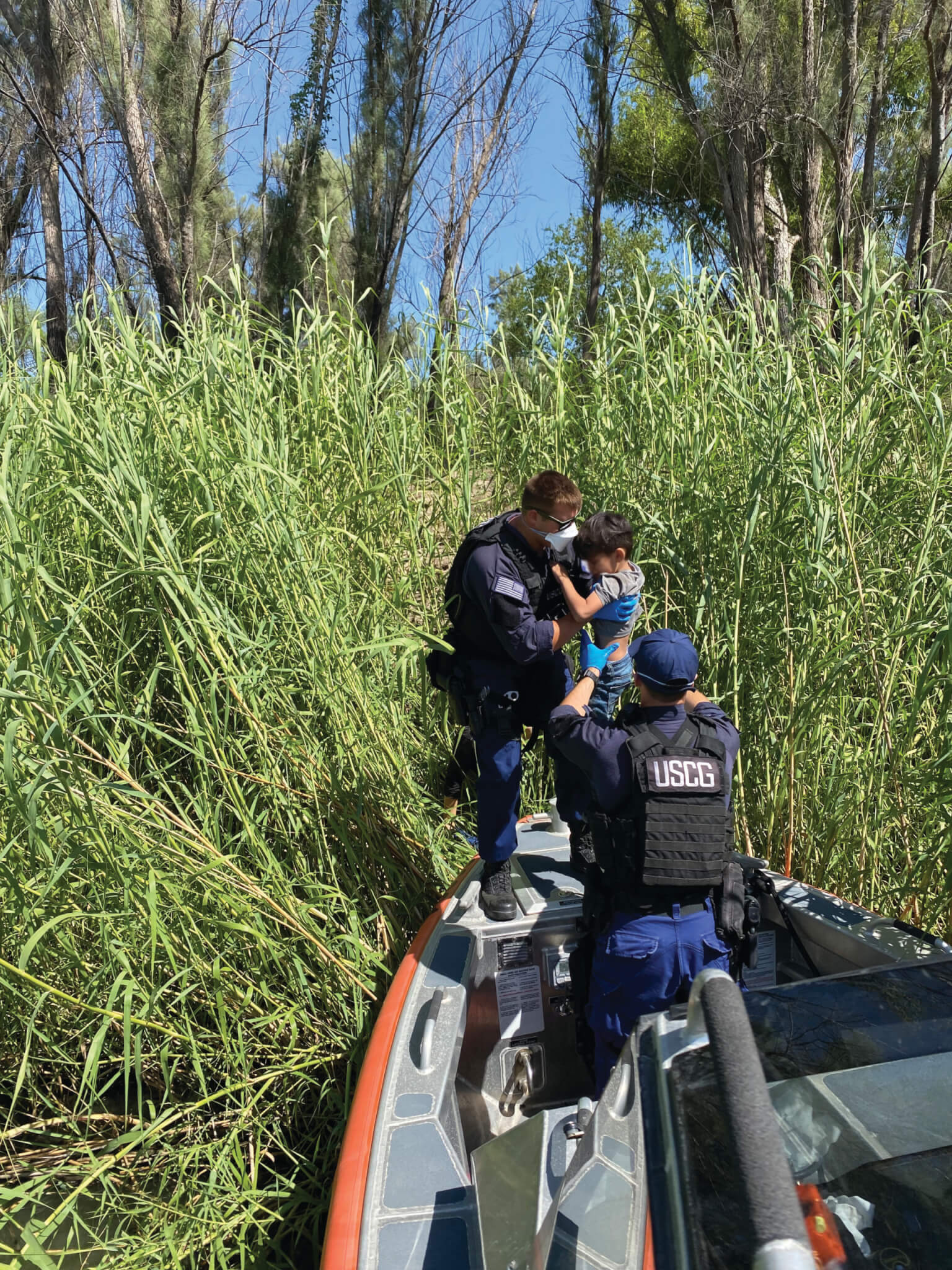
Helping people through a quick, coordinated U.S. response alongside a partner government is exactly what Sgt. Christopher Duran, of Joint Task Force Bravo, offered in Panama. From Jan. 24 to Feb. 4, the pharmacy tech with the medical group was part of a team that delivered 200,000 pounds of food and supplies to Panamanians.
“It was incredible to use what I learned from the military for the civilian population there,” Duran said. “It’s given me a different understanding of what the military can do and provide for other nations.”
At home, the U.S. military is just as ready to help civilians during crises. For example, Minnesota Army National Guard Sgt. Dustin Fischer drives a small unit support vehicle, or SUSV, nearly every winter when the state’s governor asks the National Guard to assist with severe winter storms.
In December alone, National Guardsmen from the Olivia, Minnesota, armory rescued six people. They have rescued 35 people in the past 10 years, including a 1-month-old child.
The full-time readiness noncommissioned officer for the 1324th Transportation Company enlisted in 2004 as the Guard readied for Iraq and Afghanistan.
“Our missions that we did conduct overseas immensely prepared me for dealing with these emergency missions here,” he said.
Coast Guard Petty Officer 2nd Class David Flores applied his training in diverse water skills, stress management and communication for routine maritime enforcement and humanitarian deployments along the Rio Grande River.
RELATED: USTRANSCOM delivers Urban Search and Rescue teams to Türkiye
Last summer, on the night of June 6, the crew aboard a 29-foot response boat needed all those skills when a human smuggler saw the Coast Guard boat, Flores said. The coyote, as smugglers are known, overturned the inflatable raft with several women and children aboard. He started swimming toward Mexico with the raft, Flores said, abandoning the others in a remote, uncharted stretch of the river.
As a team, the crew started pulling everyone from the water. A 1-year-old boy wasn’t breathing when Flores found him under the surface. But one of Flores’ shipmates performed CPR and the boy survived like all the others.
“I work with a bunch of professionals,” Flores said. “I want to look back at my career and be proud of my work and be proud that I was a part of an organization that makes a difference.”
That sense of purpose was clear to Rose, as he made flight after flight aboard a UH-60 delivering supplies into the Hatay Province during the past several weeks in Turkey. He said he sees how quickly the U.S. government can and will do something good for its partners.
Even more than that, he sees how military training equipped him for the need of every moment. He can pilot the utility helicopter to bring more soldiers alongside troops in a far-flung part of Afghanistan or he can deliver humanitarian supplies in a distant corner of Turkey.
“As long as you’re well trained in tasks, you can accomplish those tasks,” he said. “In the time of need, we will move vast amounts of resources and people and machinery to help.”
Read comments

